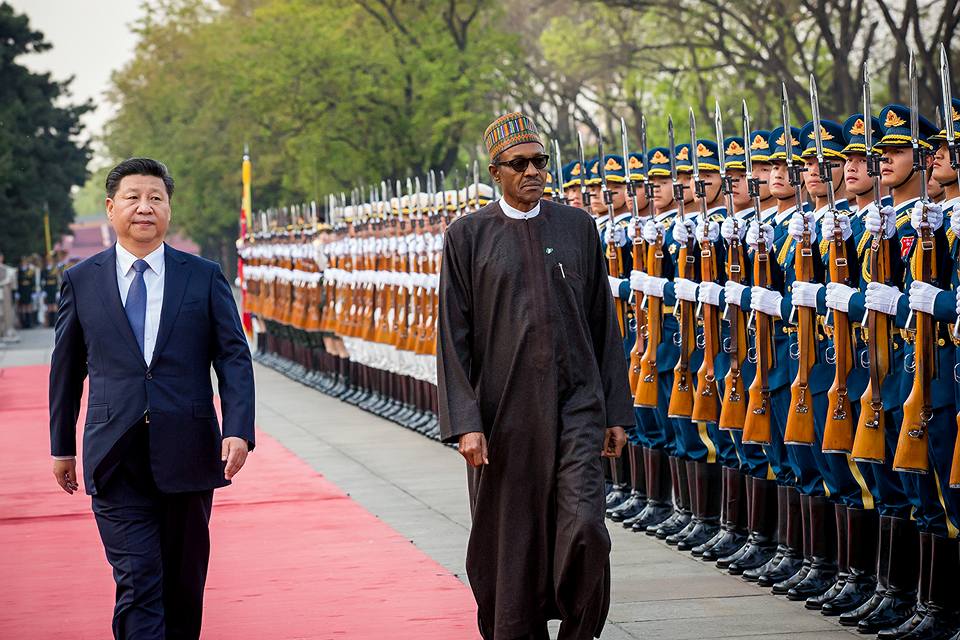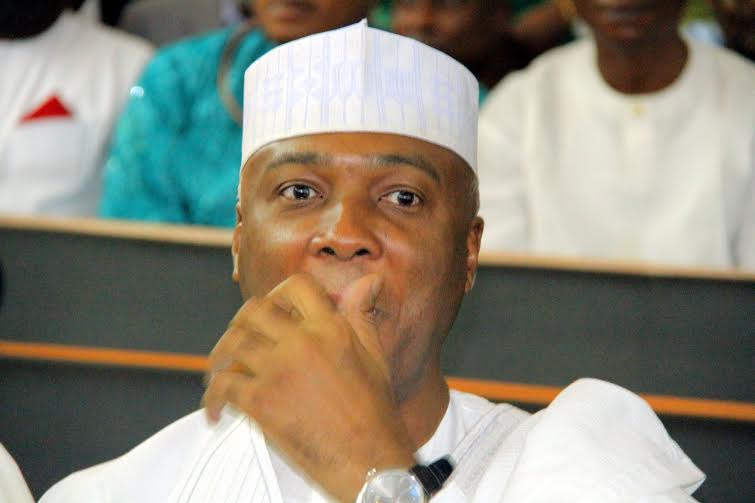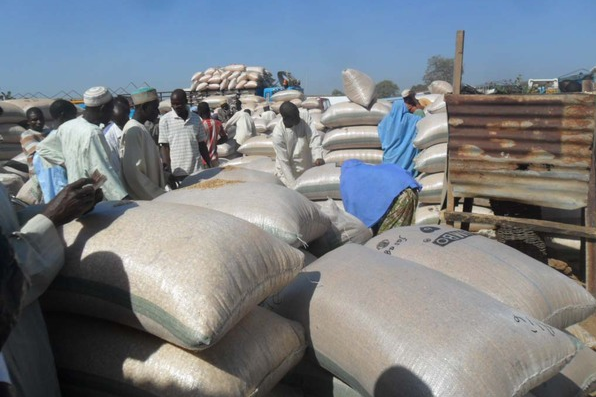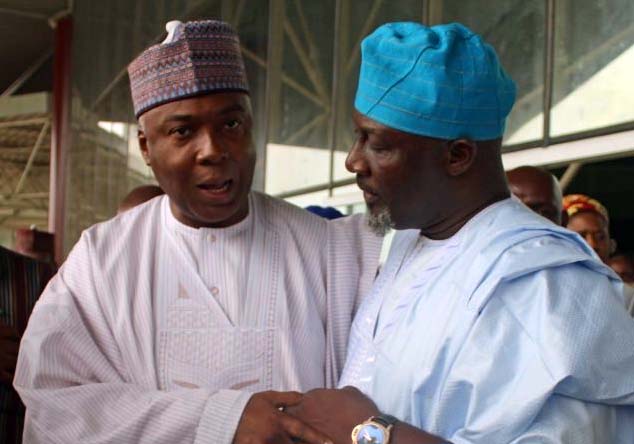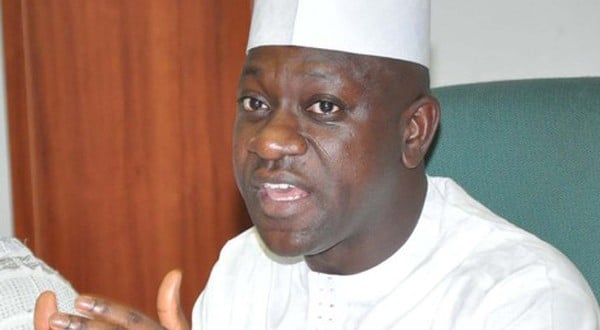Dilemmas and difficulties forced Nigeria’s President, Muhammadu Buhari, to act against his will.
Last week, Buhari crossed the pacific ocean to beg for new loan and the restructure of the existing one in Beijing.
Much more, the former military dictator seeing as a symbol of hope for a new Nigeria has been battling the headache presented by the free fall of naira against the United States dollar since he came to power in May last year.
The flush of media attention around Buhari’s trip to China and the currency swap has given little understanding of a “well-intentioned” deal for Nigeria in Beijing.
Advertisement
Much of the conversations have been about Nigeria’s debt clock rather than what prompted Buhari’s passage to China.
The $6billion loan restructuring has been explained not to be a new deal, but an existing loan, reworked in the best interest of Nigeria, though, there’s something stealth and secret about the trip that Nigerians will be surprised to know in the future.
But, I’m camping with Buhari on this loan restructuring since financial rectitude is our collective watchword against the order of the former President Goodluck Jonathan’s administration, where profligacy reigned supreme.
Advertisement
Ordinarily with the way dollar has been going on the upward swing against the naira there’s no household that has not felt the impact across the country, except such a household runs its own economy that is different from what we call the Nigerian economy. I doubt if any household does.
In the Nigerian economy, China is a big player among other countries on our plate.
To make light of the serious matter, everywhere you turn around the country there must be a made-in-China product. We can’t say that of every country investing in our economy.
And this, no other investor has got a town in Nigeria, but China has one. China town is actually a phenomenon.
Advertisement
Truly, most of the deals that Nigeria has around its major infrastructure in recent years have been with the Chinese companies and banks.
Think of the billion dollars Lagos light rail and your mind will not go to Washington, London or Berlin. You’ll think of Beijing, because China’s state-owned China Civil Engineering Construction Corp (CCECC) is in charge kicking the project to life.
Indeed, in the past, Julius Berger Construction Company held the monopoly of building our road infrastructure, but CCECC’s entrance has changed the status quo over the years.
Another example is to look inside our open markets and high street shops, the trade volumes are not without Chinese hands. The trade flow from China has helped put food on the table of many Nigerians and continues to make life affordable for millions of Nigerian families—low quality, low expense.
Advertisement
From electrical cables to vehicle spare parts, clothes and household items, the Chinese invasion is simply incomparable. It’s like a hammer on the nail.
Now the big piece of this is that our major airport terminals from Lagos to Port Harcourt, Enugu to Calabar, Abuja to Kano and others are being financed by Chinese banks. That holds true for our power plant projects and investment in agriculture as well.
Advertisement
One more, with the tumbling Oil prices and the buyers beware syndrome that has kept our major buyer, the United States at a distance, China has become a ready customer and investor.
In January 2014, the federal government approved a $10 billion in Chinese oil exploration in the Bida Basin in Niger State. That is coming at a time Shell, Chevron and other big players are almost tired of our volatile environment. The Chinese companies are simply not worried about the future of Nigeria. They are putting their money and mouth in our economy.
Advertisement
So cleverly, President Buhari must have thought very deep and rightly so that to swap naira for yuan (Chinese currency) is to swap hell for heaven.
This is the arithmetic: the scenario I painted above shows that about 50 per cent of our deals are with China. Nigerians doing business with China need US dollar, because it is an internationally acceptable currency denominator.
Advertisement
But the same dollar will still be changed to yuan, when it gets to China. So what if small and big businesses can get yuan straight from here? What if Nigeria starts paying its Chinese contractors in yuan instead of dollars?
The result will be less pressure on naira. The dollar will not be that strong, because the law of demand and supply will come into effect. That’s exactly what I think Buhari wants to do with the currency swap. He wants to make yuan the king without unnecessary competition with naira and dollar rate will see a decline.
And while the China loan and its renegotiation may not necessarily puts us in a dire situation that confronted us with the Paris Club in 2005, when we negotiated $30billion debt pardon, the statistics provided by the Debt Management Office, which now shows that we are owing $65billion (N12 trillion) should be a sign to Buhari’s presidency to tread cautiously— a plum size of the debt being domestic notwithstanding.
Of course, Nigeria’s dependency on China will then become the next challenge and that will require a strong fiscal policy. A deal with China can be complex and as a country we are now in a very ticklish situation.
One example will make the message clear: China holds America’s debt in trillion. As at December 2015, the debt stood at about $1.25 trillion. To take advantage of this, China frequently weakens yuan against the United States dollar. When it does, the price of its commodity export to the United States will be cheaper and most American families like bargain prices. The end result: there’s a ready market for Chinese export and that will funnel job creation for its 1.3 billion citizens.
In international commodity market, it is called Chinese manipulation. China needs to lower the yuan to remain competitive with other emerging markets, whose currencies are free-floating. It is an economic strategy China is using to keep its export prices competitive. It is also a bait China is using to get more value for the debt the United States owes it.
China’s long term ambition is this: China wants the yuan to replace the US dollars as the world’s new global currency.
Finally, in currency swap there are issues to deal with like prevailing exchange rate at the time of the swap and what happens to the rate during the period when the agreement subsists. This is the kernel for Nigeria’s Finance Minister, Kemi Adeosun and other drivers of change in Buhari’s cabinet.
Follow me on twitter@adeolaakinremi1
Views expressed by contributors are strictly personal and not of TheCable.

